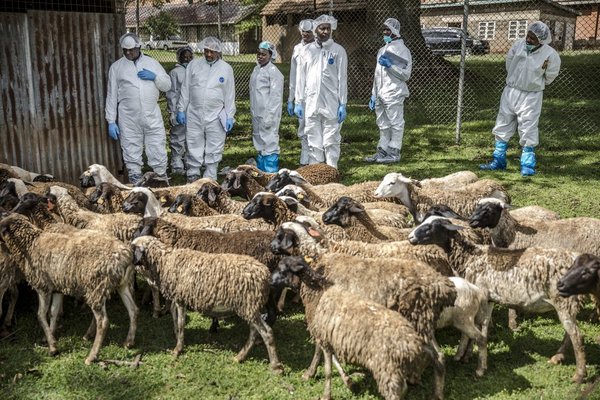- Share this article
- Subscribe to our newsletter
Global animal disease information system launched
“Strong international and national animal health systems are key to prevent diseases, ensure safe and nutritious food, and protect farmers’ interests,” said FAO Director-General QU Dongyu at an event to launch the EMPRES-i+ system in October 2021.
Today’s globalised and hyper-connected world allows the rapid spread of diseases across borders. In this context, disease intelligence systems need to be far more efficient at capturing big data, far more sensitive to detect unusual events and have the ability to rapidly share information.
EMPRES-i+ replaces an earlier version, EMPRES-i, which was first launched in 2004 and has been widely used by hundreds of stakeholders ranging from local communities to global development partners.
The upgraded platform’s features include:
- a cloud-based platform with ability to link to other data platforms from public health, animal health, and environmental sectors. This will help users to easily access data from other sectors and use information they need for further analysis.
- advanced data analytics for users to easily identify disease events and trends. Moreover, it will also help countries to plan their disease control approaches and target interventions.
- forecasting and early warning functions to allow countries to monitor disease spreading and the risk of new outbreaks. From this function, countries will be able to prepare for possible disease outbreaks early in advance.
Among the major current animal diseases threatening food security and livelihoods is African Swine Fever, which, according to the Asian Development Bank, has already inflicted losses in the region of between USD55 billion to USD130 billion, and has recently also reached the Americas.
(FAO/ile)


